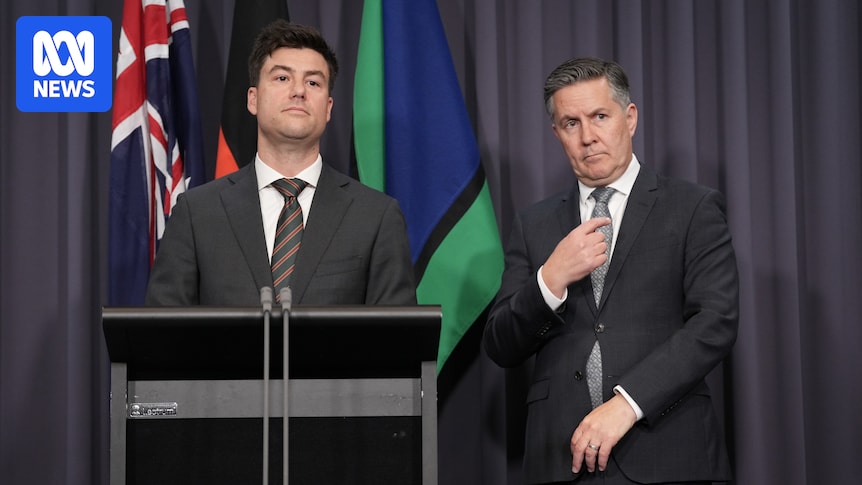
In a dramatic turn of events at Parliament House, the Australian Labor government was compelled to reverse its stance on home care packages for older Australians, following intense pressure from a coalition of the Greens, the Coalition, and independent senator David Pocock. This rapid policy shift unfolded within a mere 35 minutes, marking a significant moment in the ongoing debate over aged care reforms.
The government’s decision to expedite the release of 20,000 home support packages came after a prolonged and relentless questioning session directed at Sam Rae, the newly appointed minister for aged care. Rae, who had been thrust into the role following a factional reshuffle, faced a barrage of inquiries from the Coalition and crossbench members over two days, highlighting the urgency and gravity of the issue.
Despite Rae’s attempts to defend the government’s position by citing the rollout of 2,000 packages weekly, the pressure mounted as the opposition seized the opportunity to force a legislative vote. The government, aware of its numerical disadvantage in the Senate, ultimately conceded to the demands, allowing an amendment proposed by David Pocock to pass.
Political Dynamics and Strategic Maneuvering
The announcement comes as the Labor government seeks to align existing legislation with upcoming aged care reforms set to be implemented in November. The Coalition, Greens, and Pocock capitalized on this legislative necessity to push for immediate action on the home care package backlog.
Labor’s supermajority in the House of Representatives did not extend to the Senate, where the opposition’s strategic maneuvering posed a significant challenge. The optics of losing a Senate vote on such a critical issue were deemed too damaging, prompting the government to pivot swiftly from resistance to support.
According to sources, the government’s abrupt change in position was facilitated by a morning of negotiations, though the opposition characterized it as a capitulation rather than a genuine deal. Shadow Health Minister Anne Ruston expressed surprise at the government’s sudden shift, while Opposition Leader Sussan Ley described the outcome as a “defeat” for Labor.
Broader Political Implications
This development follows a series of political challenges for the government, including controversies surrounding Australia’s migration policies and the handling of anti-immigration rallies. The opposition has been quick to leverage these issues, criticizing Labor’s transparency and policy consistency.
Meanwhile, the government’s decision to expedite home care funding represents a significant victory for the opposition, marking their first major political win in recent weeks. The Coalition’s ability to unite with the Greens and Pocock on this issue underscores the complex dynamics at play in Australian politics.
Expert Opinions and Public Reaction
Political analysts suggest that the government’s rapid reversal reflects the growing influence of crossbench and minor party members in shaping policy outcomes. The aged care sector, which has long been under scrutiny for its shortcomings, stands to benefit from the accelerated rollout of support packages.
David Pocock voiced what many in the public are probably thinking: that amount sounds “totally bonkers”.
Public reaction to the government’s U-turn has been mixed, with some praising the expedited support for vulnerable Australians, while others criticize the government’s initial reluctance to act. The swift policy change highlights the challenges of balancing political strategy with the urgent needs of constituents.
Looking Ahead: Future Challenges and Opportunities
The move represents a significant step forward in addressing the aged care crisis, yet it also raises questions about the government’s ability to navigate complex legislative landscapes. As the November deadline for implementing broader aged care reforms approaches, the government will need to maintain momentum and ensure that promised changes are effectively delivered.
In the broader context, the government’s handling of aged care and migration issues will likely continue to influence public perception and political dynamics. The opposition’s recent successes may embolden them to pursue further challenges to government policy, while Labor must work to rebuild trust and demonstrate effective governance.
As the political landscape evolves, stakeholders across the aged care sector and beyond will be watching closely to see how these developments unfold and what they mean for the future of Australian politics and policy.







